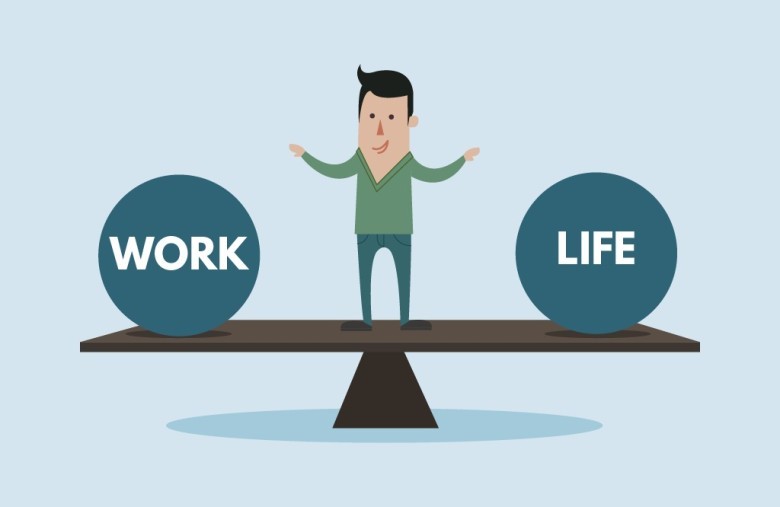
Striking a Balance: Personal Development and the Importance of Work-Life Harmony
The Growing Emphasis on Personal Development
In today’s fast-paced world, personal development has emerged as a critical area of focus for many individuals. This growing emphasis on self-improvement spans various aspects of life, including emotional well-being, mental health, career advancement, and personal fulfillment. Personal development encompasses activities that improve self-awareness, develop talents, enhance the quality of life, and contribute to the realization of dreams and aspirations.

One significant aspect of personal development is maintaining a healthy work-life balance. Balancing professional responsibilities with personal life is essential for overall well-being and long-term success. The concept of work-life balance involves prioritizing time and energy between work duties and personal activities, ensuring that neither aspect is neglected.
Notable Figures Leading by Example
Prominent individuals across various fields are increasingly prioritizing personal development and work-life balance, serving as role models for others. One notable example is a veteran radio star who recently made headlines by stepping away from their high-profile role to focus on self-care and achieve better life balance. This decision underscores the importance of recognizing when to take a step back and realign priorities to maintain mental and physical health.
This radio star's move is part of a broader trend where public figures and professionals acknowledge the pressures of their careers and take proactive steps to mitigate burnout. By sharing their journeys, these individuals inspire others to consider their own work-life balance and personal development needs.
Strategies for Achieving Work-Life Balance
Maintaining a work-life balance requires deliberate effort and effective strategies. Here are some key approaches to achieving this balance:
-
Setting Boundaries:
- Establishing clear boundaries between work and personal time is crucial. This includes defining work hours, limiting work-related communications outside of these hours, and ensuring that personal time is protected.
-
Prioritizing Self-Care:
- Self-care activities, such as exercise, hobbies, meditation, and spending time with loved ones, are vital for recharging and maintaining mental health. Prioritizing self-care can enhance overall productivity and well-being.
-
Time Management:
- Effective time management techniques, such as prioritizing tasks, delegating responsibilities, and avoiding procrastination, can help balance professional and personal commitments. Tools like calendars, to-do lists, and time-tracking apps can assist in managing time more efficiently.
-
Flexible Work Arrangements:
- Many organizations now offer flexible work arrangements, such as remote work, flexible hours, and compressed workweeks. Taking advantage of these options can provide greater control over one’s schedule and reduce work-related stress.
-
Seeking Support:
- Building a support network of friends, family, colleagues, and mentors can provide emotional and practical assistance. Seeking professional help, such as counseling or coaching, can also be beneficial in managing stress and achieving personal goals.
-
Continuous Learning and Development:
- Engaging in continuous learning and development activities, such as attending workshops, pursuing further education, and reading, can enhance skills and personal growth. Lifelong learning contributes to a sense of achievement and can open new opportunities for career advancement.
The Role of Employers in Promoting Work-Life Balance
Employers play a crucial role in supporting their employees' work-life balance and personal development. Organizations that prioritize employee well-being often see increased productivity, higher job satisfaction, and reduced turnover rates. Here are some ways employers can foster a supportive work environment:
-
Promoting a Healthy Work Culture:
- Creating a work culture that values work-life balance and encourages employees to take breaks, use their vacation days, and maintain reasonable work hours.
-
Providing Resources and Support:
- Offering resources such as wellness programs, mental health services, and personal development opportunities. Access to training, coaching, and mentorship programs can support employees' growth and well-being.
-
Encouraging Open Communication:
- Fostering an environment where employees feel comfortable discussing their needs and concerns. Open communication can help identify and address issues that may impact work-life balance.
-
Implementing Flexible Policies:
- Developing policies that support flexible work arrangements and understanding the diverse needs of employees. Flexibility can help employees manage their personal responsibilities while meeting professional demands.
-
Recognizing and Rewarding Efforts:
- Acknowledging and rewarding employees for their hard work and contributions. Recognition programs can boost morale and reinforce the value of a balanced work-life approach.
The Long-Term Benefits of Prioritizing Personal Development and Work-Life Balance
Prioritizing personal development and work-life balance yields numerous long-term benefits. Individuals who successfully manage their professional and personal lives often experience improved health, increased job satisfaction, and enhanced relationships. They are better equipped to handle stress, maintain a positive outlook, and achieve their personal and career goals.
For organizations, supporting employees' well-being leads to a more engaged and productive workforce. Companies that invest in their employees' development and balance are likely to attract and retain top talent, fostering a positive and thriving workplace culture.
In conclusion, the growing emphasis on personal development and work-life balance reflects a broader cultural shift towards valuing well-being and holistic success. Notable figures, such as the veteran radio star who prioritized self-care, exemplify the importance of making deliberate choices to maintain balance. By adopting effective strategies and fostering supportive environments, individuals and organizations can achieve lasting benefits and create a more fulfilling and sustainable future.
For more insights on personal development and work-life balance, visit 7NEWS (Science of People) (The Express Tribune).












Comments
0 comment